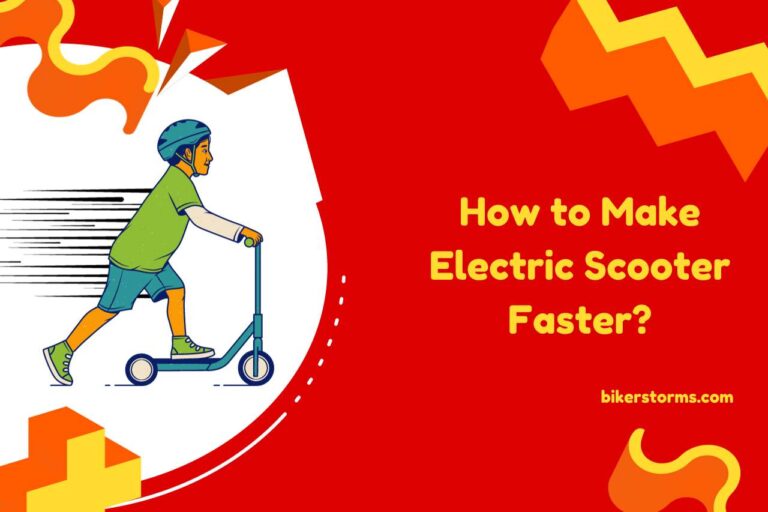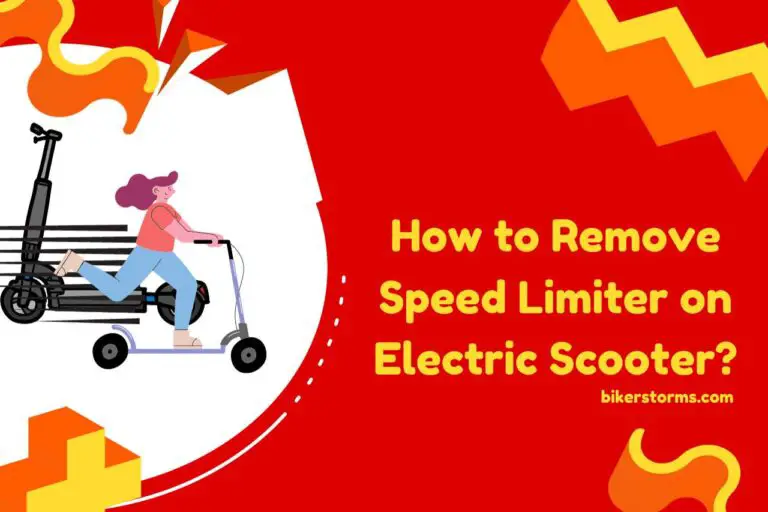How Much Does An Electric Bike Battery Weigh?
Battery weight affects the e-bike’s performance in several ways. So, how much does an electric bike battery weigh? If you are a rider who is curious about battery weight, this discussion is for you! We will reveal the weight range of e-bike batteries and how they impact the bike’s overall performance.
There are some other factors that contribute to the weight of e-bikes, such as frame material. If you continue reading, you will be able to know those factors, too.
How Much Does an Electric Bike Battery Weigh?
In general, an electric bike battery can weigh from 4 to 8 pounds, depending on its capacity and cell type. Let’s check what factors determine the weight of the battery.
Capacity vs. Weight
Higher capacity (measured in watt-hours) usually means more weight. For instance, a 250Wh battery may be around 4 pounds, while a 500Wh battery could be around 6 pounds.
Battery Cell Types
Lithium-ion (Li-ion) cells are common, offering a balance between weight and performance. Other types, like nickel-metal hydride (NiMH), are heavier but offer less efficiency.
These are some real-world examples.
-
- Bosch PowerPacks weigh between 5.5 to 7.7 pounds.
- Yamaha’s 36V battery is about 5.7 pounds, and their 48V model is around 7.7 pounds.
- Specialized Turbo Levo SL’s battery is notably light at 4 pounds.
Undoubtedly, electric bike battery weight is an important factor, but don’t forget to consider range, power, and cost. Lighter batteries are easier to handle, particularly for lifting or carrying the bike. However, larger batteries offer the benefit of longer ranges.
In our experience, finding the right balance between weight and battery capacity is key for an enjoyable e-bike experience.
Does Battery Weight Affect the E-bike’s Performance?
Yes, the battery weight of an E-bike can affect its speed, handling, and range. Based on our experience, here’s how it affects your ride:
- Heavier batteries slow down acceleration and can limit top speed. On the other hand, lighter batteries result in faster acceleration and potentially higher speeds.
- More weight can make the e-bike feel less agile and harder to maneuver, especially in tight turns. In contrast, a lighter battery improves the bike’s responsiveness and control.
- Heavier batteries drain more power, especially on inclines, reducing the range. But lighter batteries enhance the efficiency, allowing for longer rides on a single charge.
In our tests with two e-bikes of differing battery weights, the lighter one was noticeably quicker and more agile. Depending on your needs, the choice can vary.
Other Factors that Influence the Weight of an E-bike
The overall weight of an e-bike is influenced by certain factors such as its frame material, motor, components, and customization:
Frame Material
-
- Aluminium: Widely used, balances weight, strength, and cost.
- Carbon Fiber: Lightest, strongest, but pricey.
- Steel: Durable, heavier, more affordable, common in budget e-bikes.
- Titanium: Lighter than steel, expensive, less common.
- Frame Design: Thicker tubes and complex designs increase weight and vice versa.
Motor Placement and Type
-
- Hub Motors: They are located in the wheel and are usually heavier.
- Mid-Drive Motors: It is placed near the crankset, lighter, and may affect balance.
- Motor Power: More power means more weight.
Components and Accessories
-
- Forks: Suspension forks are heavier than rigid ones.
- Brakes: Hydraulic brakes weigh more than rim brakes but offer better control.
- Drivetrain: Adds weight and impacts shifting performance.
- Tires: Wider, heavier tires give better traction but add weight.
- Accessories: Fenders, racks, and lights increase weight.
It is possible to customize the bike’s components as you wish. Normally, lighter components can reduce weight. But make sure to balance weight with durability and performance.
From our experience, the right e-bike weight depends on your needs and riding style. Consider terrain, range, and budget. Lighter isn’t always better, as durability and performance are equally important. Finding a good balance is key to choosing the perfect e-bike for you.
The size of the battery also is a critical factor. Read our guide on What Size Battery Is Best For An Electric Bike for a better idea.







